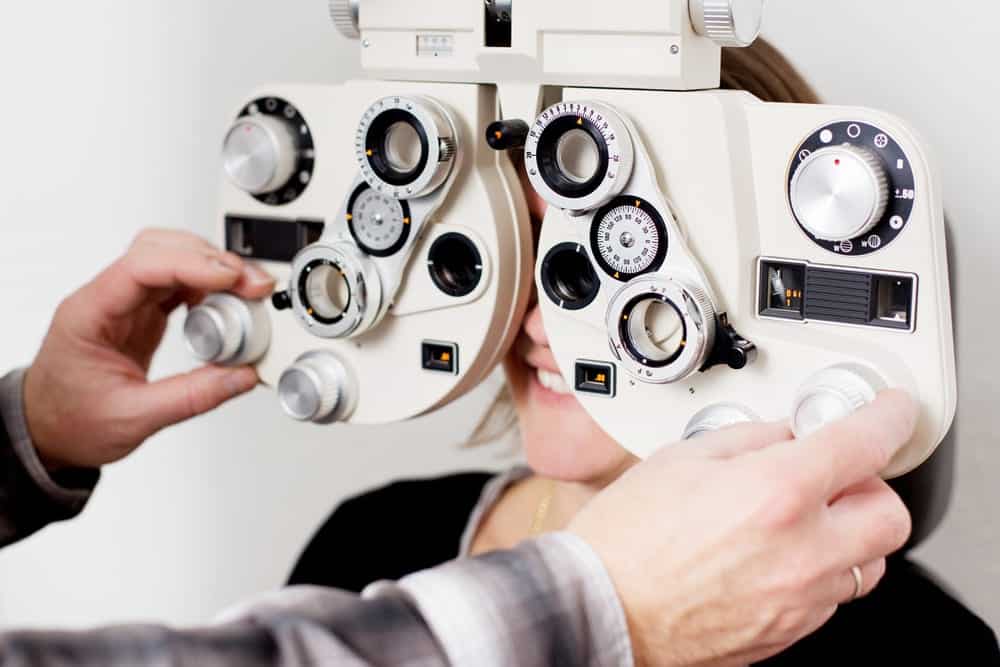You wouldn’t skip your annual physical exam, but for many patients, regular eye exams just aren’t a priority. Maybe it’s the fact that vision loss tends to happen slowly – or maybe it’s the knowledge that some insurance plans don’t cover vision care, making it difficult for patients to access regular exams. Either way, it’s important to understand that eye exams are crucial at every age, even if you think your eyesight is just fine. So, why are eye exams important?
Why Are Eye Exams Important?
Prevention Is Key
Eye exams are your best tool to prevent vision loss – so why are so many Americans skipping trips to the optometrist? The Centers for Disease Control and Prevention (CDC) found that, of the estimated 61 million US adults at high risk for vision loss, only half had visited an eye doctor within the past year. The bottom line is that early detection and treatment can have a dramatic effect on several common eye diseases. That includes cataracts, which are the leading cause of vision loss in the United States.
Exams Keep Kids Healthy
More and more children are developing myopia, or nearsightedness. These numbers are alarming for several reasons. First, children who develop myopia early in life tend to experience progressively worsening nearsightedness throughout childhood — putting them at greater risk of potentially serious eye conditions later in life, including retinal detachment. Undetected vision problems can also impact your child’s quality of life. The National Eye Institute reports that up to 80 percent of crucial classroom learning requires good vision. It can be hard to know if children are seeing clearly and comfortably, especially if they were born with less-than-perfect vision (as so many of us are). For all of these reasons, regular eye exams are your best option to keep your little ones seeing clearly. When detected early, your doctor can initiate myopia control measures that can help reduce your child’s risk of ongoing serious eye problems.
Not Just About the Eyes
Your eye doctor will obviously focus on eye and vision problems during your eye exam. However, in addition to looking for eye diseases, your optometrist or ophthalmologist might be able to identify other medical problems – even before your primary care provider does. That includes everything from diabetes and high blood pressure to certain cancers.
What to Expect During an Eye Exam
If you’ve never had an eye exam, you’re not alone. Most eye exams are comprehensive and may include dilation by an optometrist or ophthalmologist. These exams are used to detect eye diseases in the early stages, measuring your visual acuity (sharpness), eye movement, depth perception, and eye alignment. For more information on what to expect during an eye exam, check out our blog.
_____
So, why are eye exams important? Ultimately, regular eye exams are the best way to identify, prevent, and treat debilitating vision conditions like cataracts and glaucoma. Eye exams are also key when it comes to identifying vision concerns in children. After all, little ones might not be able to express visual difficulties. Ready to schedule your next eye exam? If you live in southwest Missouri, contact Heffington’s for help.
Since 1975, the Heffington family has been assisting the Springfield community with top-quality eye care and affordable eyeglasses and contacts. One of the unique features of our family-owned business is that we manufacture lenses at our own laboratory, giving us total control over the service and pricing, and we’re happy to pass our savings on to you. To learn more about our products and services, please get in touch with us online, send an email to asktheexperts@heffingtons.com, or give us a call at 417-869-3937 (Optiland location) or 417-882-3937 (House of Vision location). We look forward to hearing from you!

